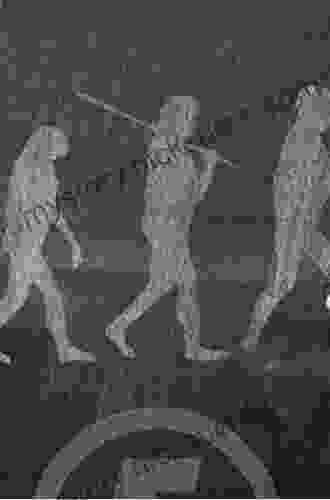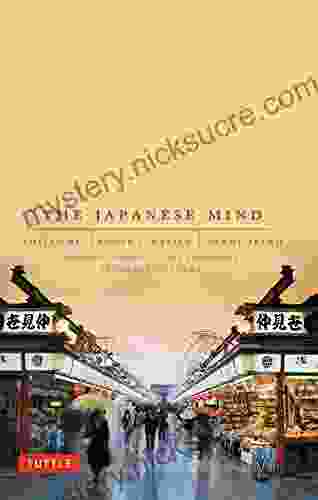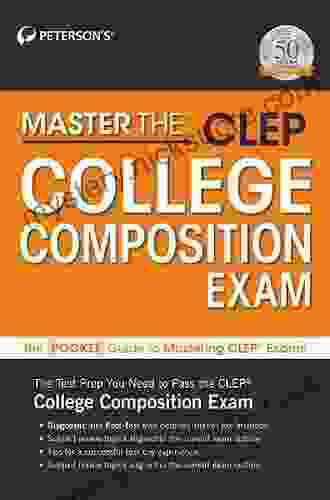Domesticated Evolution in the Man-Made World: A Comprehensive Exploration of How Human Activities Shape Animal Genomes

In the rapidly changing realm of evolutionary biology, the concept of domesticated evolution stands as a testament to the profound influence that human activities can have on the genetic makeup of animals. Domesticated evolution refers to the process by which animals undergo significant genetic changes as a result of being domesticated by humans. This fascinating phenomenon has played a pivotal role in shaping the evolution of numerous species, from the familiar canine companion to the livestock that provide sustenance to human populations.
4.4 out of 5
| Language | : | English |
| File size | : | 5841 KB |
| Text-to-Speech | : | Enabled |
| Screen Reader | : | Supported |
| Enhanced typesetting | : | Enabled |
| Word Wise | : | Enabled |
| Print length | : | 495 pages |
The domestication of animals began thousands of years ago with early human societies seeking to harness the abilities of wild animals for their own benefit. Wolves, for instance, were gradually domesticated into dogs, becoming indispensable partners in hunting and guarding. Over time, selective breeding practices have led to the development of hundreds of distinct dog breeds, each with its own unique set of physical and behavioral characteristics.
Selective breeding, a cornerstone of domesticated evolution, involves the purposeful mating of individuals with desired traits. By controlling the reproductive process, humans can gradually accumulate favorable genetic variations within a population. This technique has been employed in the development of livestock, including cattle, pigs, and sheep, resulting in breeds that exhibit enhanced growth rates, disease resistance, and other desirable qualities.
The genetic consequences of domesticated evolution are extensive and often profound. Domesticated animals typically exhibit reduced genetic diversity compared to their wild counterparts. This reduction in genetic variation is a result of the controlled breeding practices employed by humans, which limit the gene flow between populations. Additionally, artificial selection can lead to the accumulation of deleterious mutations, which may have negative effects on the health and fitness of domesticated animals.
Despite the potential drawbacks, domesticated evolution has also brought about numerous benefits for both humans and animals. The development of livestock has provided a reliable source of food and other resources, contributing to the growth and prosperity of human civilization. Moreover, the domestication of animals has fostered close bonds between humans and their animal companions, enriching our lives in countless ways.
As we continue to unravel the complexities of domesticated evolution, it is imperative that we consider the ethical implications of our actions. Selective breeding practices, while powerful tools for shaping animal genomes, must be employed responsibly to ensure the well-being of domesticated species. By striking a balance between human needs and animal welfare, we can harness the transformative power of domesticated evolution to create a harmonious coexistence between humans and animals.
Case Studies in Domesticated Evolution
The phenomenon of domesticated evolution is not limited to a few isolated examples. Throughout history, numerous animal species have undergone significant genetic changes as a result of human activities. Here are a few notable case studies:
- Dogs: The domestication of wolves into dogs is one of the most well-studied examples of domesticated evolution. Over thousands of years of selective breeding, dogs have evolved into a diverse array of breeds, each with its own unique physical and behavioral characteristics.
- Livestock: Cattle, pigs, and sheep have been domesticated for thousands of years, providing humans with a reliable source of food and other resources. Selective breeding has led to the development of breeds with enhanced growth rates, disease resistance, and other desirable qualities.
- Fanciers' breeds: Fancy breeds of animals, such as ornamental fish, pigeons, and rabbits, have been bred for their aesthetic qualities. These breeds often exhibit extreme physical characteristics, such as elaborate plumage or unusually long ears, which have no adaptive value in the wild.
- Laboratory animals: Animals such as mice and zebrafish have been domesticated for use in scientific research. These animals have been bred to be docile and easy to handle, and they often carry genetic modifications that make them suitable for studying specific biological processes.
The Future of Domesticated Evolution
As our understanding of genetics continues to expand, the potential for domesticated evolution is vast. Genetic engineering techniques, such as CRISPR-Cas9, offer unprecedented opportunities for shaping animal genomes with precision and efficiency. This technology could potentially be used to develop animals with enhanced disease resistance, improved growth rates, or even novel abilities.
However, it is important to proceed with caution as we explore the future of domesticated evolution. Genetic engineering techniques must be employed responsibly to ensure the well-being of domesticated animals and to avoid unintended ecological consequences. By carefully considering the ethical implications of our actions, we can harness the transformative power of domesticated evolution to create a better world for both humans and animals.
4.4 out of 5
| Language | : | English |
| File size | : | 5841 KB |
| Text-to-Speech | : | Enabled |
| Screen Reader | : | Supported |
| Enhanced typesetting | : | Enabled |
| Word Wise | : | Enabled |
| Print length | : | 495 pages |
Do you want to contribute by writing guest posts on this blog?
Please contact us and send us a resume of previous articles that you have written.
 Fiction
Fiction Non Fiction
Non Fiction Romance
Romance Mystery
Mystery Thriller
Thriller SciFi
SciFi Fantasy
Fantasy Horror
Horror Biography
Biography Selfhelp
Selfhelp Business
Business History
History Classics
Classics Poetry
Poetry Childrens
Childrens Young Adult
Young Adult Educational
Educational Cooking
Cooking Travel
Travel Lifestyle
Lifestyle Spirituality
Spirituality Health
Health Fitness
Fitness Technology
Technology Science
Science Arts
Arts Crafts
Crafts DIY
DIY Gardening
Gardening Petcare
Petcare Sarah Berman
Sarah Berman Valliappa Lakshmanan
Valliappa Lakshmanan Dan Flores
Dan Flores Leah Zani
Leah Zani Denise May Levenick
Denise May Levenick Michael D Alessio
Michael D Alessio Tina Schindler
Tina Schindler Ralph Galeano
Ralph Galeano Hibiki Yamazaki
Hibiki Yamazaki Ashley Christensen
Ashley Christensen John M Marzluff
John M Marzluff Tony E Adams
Tony E Adams Carrie Hope Fletcher
Carrie Hope Fletcher Michael A Tompkins
Michael A Tompkins W D Wetherell
W D Wetherell Dick Hannula
Dick Hannula Cornelia Pelzer Elwood
Cornelia Pelzer Elwood Sheila A Sorrentino
Sheila A Sorrentino Jennifer L Scott
Jennifer L Scott Ransom Riggs
Ransom Riggs Ken Sande
Ken Sande Kevin Houston
Kevin Houston Edward Humes
Edward Humes Melissa A Priblo Chapman
Melissa A Priblo Chapman Michael Tan
Michael Tan Elizabeth May
Elizabeth May John R Mabry
John R Mabry Lois Lowry
Lois Lowry Charles Staley
Charles Staley Marc Bona
Marc Bona Dounya Awada
Dounya Awada Richard Harding Davis
Richard Harding Davis Shelby Hailstone Law
Shelby Hailstone Law Emt Basic Exam Prep Team
Emt Basic Exam Prep Team Anthony Camera
Anthony Camera Emma Warren
Emma Warren Roger J Davies
Roger J Davies Rowena Bennett
Rowena Bennett Craig Callender
Craig Callender Peterson S
Peterson S Elaine Tyler May
Elaine Tyler May William Wood
William Wood Lisa Hopp
Lisa Hopp Neville Goddard
Neville Goddard Sandra Niche
Sandra Niche Buddy Levy
Buddy Levy Martina D Antiochia
Martina D Antiochia Kerry H Cheever
Kerry H Cheever Albert Jeremiah Beveridge
Albert Jeremiah Beveridge Issai Chozanshi
Issai Chozanshi Richard Bullivant
Richard Bullivant Marcia Scheiner
Marcia Scheiner Bruce Sutherland
Bruce Sutherland Jimmy Chin
Jimmy Chin Michael Mewshaw
Michael Mewshaw Clement Salvadori
Clement Salvadori Barbara Acello
Barbara Acello William M Baum
William M Baum Simon A Rego
Simon A Rego Howard E Mccurdy
Howard E Mccurdy Matthew Marchon
Matthew Marchon Matt Price
Matt Price Duncan Steel
Duncan Steel Bruce W Harris
Bruce W Harris Shawna Richer
Shawna Richer Marla Taviano
Marla Taviano David Martin
David Martin Steve Barrett
Steve Barrett Malika Grayson
Malika Grayson Helen Webster
Helen Webster Keith Brewer
Keith Brewer Jacob Erez
Jacob Erez Dory Willer
Dory Willer Sherri L Jackson
Sherri L Jackson Ruthellen Josselson
Ruthellen Josselson John J Ratey
John J Ratey Rob Pate
Rob Pate Pamela Weintraub
Pamela Weintraub Zachery Knowles
Zachery Knowles Bruce Watt
Bruce Watt Jack Canfield
Jack Canfield Scarlett V Clark
Scarlett V Clark Om Krishna Uprety
Om Krishna Uprety Charles Salzberg
Charles Salzberg R Scott Thornton
R Scott Thornton Lottie Bildirici
Lottie Bildirici Eugenia G Kelman
Eugenia G Kelman Nick Littlehales
Nick Littlehales Jared Diamond
Jared Diamond E Ink Utilizer
E Ink Utilizer Robert A Cutietta
Robert A Cutietta Mark Hansen
Mark Hansen Paul Rabinow
Paul Rabinow Jack Disbrow Gunther
Jack Disbrow Gunther Jill Angie
Jill Angie Emily Writes
Emily Writes Sarah Jacoby
Sarah Jacoby Leon Speroff
Leon Speroff Daniel Prince
Daniel Prince Ronald T Potter Efron
Ronald T Potter Efron Martin Davies
Martin Davies Kathleen Flinn
Kathleen Flinn Silvia Dunn
Silvia Dunn Martha Finley
Martha Finley Oprah Winfrey
Oprah Winfrey Greg W Prince
Greg W Prince Melissa Mullamphy
Melissa Mullamphy Douglas Preston
Douglas Preston Chad Eastham
Chad Eastham M E Brines
M E Brines Arrl Inc
Arrl Inc Phil Williams
Phil Williams Fern Schumer Chapman
Fern Schumer Chapman Helen Zuman
Helen Zuman Freya Pickard
Freya Pickard Healthfit Publishing
Healthfit Publishing Robert Walker
Robert Walker Jessica Holsman
Jessica Holsman Richard C Francis
Richard C Francis Suzanne Young
Suzanne Young Joanne Kimes
Joanne Kimes Ron Senyor
Ron Senyor Destiny S Harris
Destiny S Harris Lisa Feldman Barrett
Lisa Feldman Barrett William L Sullivan
William L Sullivan Guy Grieve
Guy Grieve Nick Gamis
Nick Gamis Brandy Colbert
Brandy Colbert Stedman Graham
Stedman Graham Deirdre V Lovecky
Deirdre V Lovecky Tom Bass
Tom Bass Ronit Irshai
Ronit Irshai George Daniel
George Daniel Shmuel Goldberg
Shmuel Goldberg Trevor Thomas
Trevor Thomas Michael Gurian
Michael Gurian Hecateus Apuliensis
Hecateus Apuliensis Albert Rutherford
Albert Rutherford Frederick Jackson Turner
Frederick Jackson Turner Byron L Reeder
Byron L Reeder Caitlyn Dare
Caitlyn Dare Tricia Levenseller
Tricia Levenseller Marc Van Den Bergh
Marc Van Den Bergh Philippe Karl
Philippe Karl Ira K Wolf
Ira K Wolf Caleb J Tzilkowski
Caleb J Tzilkowski Cal Newport
Cal Newport Cecil B Hartley
Cecil B Hartley Katie Fallon
Katie Fallon Philip Purser Hallard
Philip Purser Hallard C S Lewis
C S Lewis Lily Field
Lily Field Phil Bourque
Phil Bourque Julie Golob
Julie Golob Shyima Hall
Shyima Hall Jane Brocket
Jane Brocket Dave Bosanko
Dave Bosanko William Ellet
William Ellet Richard Barrett
Richard Barrett Don Allen Jr
Don Allen Jr Lew Freedman
Lew Freedman Kevin A Morrison
Kevin A Morrison Dian Olson Belanger
Dian Olson Belanger Veronica Eden
Veronica Eden Trevelyan
Trevelyan Kindle Edition
Kindle Edition William Ian Miller
William Ian Miller Konstantinos Mylonas
Konstantinos Mylonas Erin Macy
Erin Macy Jeffrey L Kohanek
Jeffrey L Kohanek Heather Jacobson
Heather Jacobson Wyatt Mcspadden
Wyatt Mcspadden David Savedge
David Savedge Tim S Grover
Tim S Grover Rebecca Musser
Rebecca Musser Vincent Chidindu Asogwa
Vincent Chidindu Asogwa Elizabeth Dupart
Elizabeth Dupart Db King
Db King Max Lucado
Max Lucado Sara Gaviria
Sara Gaviria Bruce Maxwell
Bruce Maxwell Mary C Townsend
Mary C Townsend Winky Lewis
Winky Lewis Wayne Coffey
Wayne Coffey Vivian Foster
Vivian Foster Kevin Panetta
Kevin Panetta Richard Henry Dana
Richard Henry Dana Judith Merkle Riley
Judith Merkle Riley Robert D Gibbons
Robert D Gibbons Jamie Marich
Jamie Marich Meghan Daum
Meghan Daum Diane Lindsey Reeves
Diane Lindsey Reeves Dave Rearick
Dave Rearick Emily Lowry
Emily Lowry Peter Bodo
Peter Bodo Nicolas Bergeron
Nicolas Bergeron Romola Anderson
Romola Anderson Lingo Mastery
Lingo Mastery Lily Raff Mccaulou
Lily Raff Mccaulou Dvora Meyers
Dvora Meyers Sarah Prager
Sarah Prager Kruti Joshi
Kruti Joshi Stacey Rourke
Stacey Rourke Jim Warnock
Jim Warnock Linda Rosenkrantz
Linda Rosenkrantz Tyler Trent
Tyler Trent Nicola S Dorrington
Nicola S Dorrington Winslow Tudor
Winslow Tudor Elizabeth Laing Thompson
Elizabeth Laing Thompson C J Archer
C J Archer Dorothy Canfield Fisher
Dorothy Canfield Fisher Collins Easy Learning
Collins Easy Learning Pia Nilsson
Pia Nilsson Nicola Yoon
Nicola Yoon Lsat Unplugged
Lsat Unplugged Elisabeth Elliot
Elisabeth Elliot Lee Jackson
Lee Jackson Pedro Urvi
Pedro Urvi Chris Pountney
Chris Pountney Gary Mayes
Gary Mayes Olivier Doleuze
Olivier Doleuze Pat Rigsby
Pat Rigsby Della Ata Khoury
Della Ata Khoury Maha Alkurdi
Maha Alkurdi Jonathan T Gilliam
Jonathan T Gilliam S M Kingdom
S M Kingdom Sylvia Williams Dabney
Sylvia Williams Dabney Michael Chatfield
Michael Chatfield Peter J D Adamo
Peter J D Adamo Dr Tommy John
Dr Tommy John Skip Lockwood
Skip Lockwood David Tanis
David Tanis Frank Muir
Frank Muir Mark Young
Mark Young Jesse Romero
Jesse Romero Celeste Headlee
Celeste Headlee Michael Blastland
Michael Blastland Joseph Moss
Joseph Moss Scott Hartshorn
Scott Hartshorn Scott Mactavish
Scott Mactavish Mark Stavish
Mark Stavish Carole Bouchard
Carole Bouchard Nawuth Keat
Nawuth Keat Max Lugavere
Max Lugavere Matt Mullenix
Matt Mullenix Valerie Poore
Valerie Poore Law School Admission Council
Law School Admission Council Ned Feehally
Ned Feehally Roger Marshall
Roger Marshall Tibor Rutar
Tibor Rutar John Kretschmer
John Kretschmer Jennifer Appel
Jennifer Appel John Moren
John Moren Richard W Voelz
Richard W Voelz Robert Larrison
Robert Larrison Katharine Mcgee
Katharine Mcgee Natasha Ngan
Natasha Ngan Simon Michael Prior
Simon Michael Prior Gregory A Kompes
Gregory A Kompes Dianne Maroney
Dianne Maroney David Cannon
David Cannon The Atavist
The Atavist Ian Leslie
Ian Leslie Niels H Lauersen
Niels H Lauersen Lauren Manoy
Lauren Manoy Craig Martelle
Craig Martelle Jess J James
Jess J James Bryan Litz
Bryan Litz John H Cunningham
John H Cunningham Joyceen S Boyle
Joyceen S Boyle Orangepen Publications
Orangepen Publications Kyra Phillips
Kyra Phillips Martina Mcbride
Martina Mcbride Mcgraw Hill
Mcgraw Hill Cassandra Mack
Cassandra Mack J R Rain
J R Rain Ken Schwaber
Ken Schwaber Meg Cabot
Meg Cabot Jim Al Khalili
Jim Al Khalili Thomas Achatz
Thomas Achatz John Jamieson
John Jamieson Victoria Honeybourne
Victoria Honeybourne Sophie Messager
Sophie Messager Fmg Publications Special Edition
Fmg Publications Special Edition Charu C Aggarwal
Charu C Aggarwal Sam Priestley
Sam Priestley Paige Powers
Paige Powers William Rathje
William Rathje Vladimir Lossky
Vladimir Lossky Sterling Test Prep
Sterling Test Prep David Wilber
David Wilber Earl G Williams
Earl G Williams Heather Balogh Rochfort
Heather Balogh Rochfort Sophie D Coe
Sophie D Coe Tyler Burt
Tyler Burt Marco Wenisch
Marco Wenisch Theodora Papatheodorou
Theodora Papatheodorou John H Falk
John H Falk Ivy Hope
Ivy Hope Ivan Gridin
Ivan Gridin Tim Glover
Tim Glover Ian Tuhovsky
Ian Tuhovsky Jim Supica
Jim Supica Tamara Ferguson
Tamara Ferguson Tim Freke
Tim Freke Joe Baker
Joe Baker Kendall Rose
Kendall Rose James Beard
James Beard Mona Bijjani
Mona Bijjani Gary Lewis
Gary Lewis Leslie A Sams
Leslie A Sams James W Anderson
James W Anderson Stian Christophersen
Stian Christophersen Kaplan Test Prep
Kaplan Test Prep Karen J Rooney
Karen J Rooney Sue Elvis
Sue Elvis Jason Runkel Sperling
Jason Runkel Sperling J R Harris
J R Harris Aaron Reed
Aaron Reed Matthew Warner Osborn
Matthew Warner Osborn Rand Cardwell
Rand Cardwell Sammy Franco
Sammy Franco Norman Thelwell
Norman Thelwell Eric R Dodge
Eric R Dodge Jim West
Jim West Robert Garland
Robert Garland Paul Murdin
Paul Murdin Terry Laughlin
Terry Laughlin David Nathan Fuller
David Nathan Fuller Thomas Deetjen
Thomas Deetjen Samantha De Senna Fernandes
Samantha De Senna Fernandes Donna Goldberg
Donna Goldberg Lianna Marie
Lianna Marie Carmen Davenport
Carmen Davenport Ivar Dedekam
Ivar Dedekam Susan Frederick Gray
Susan Frederick Gray Francis Glebas
Francis Glebas Maren Stoffels
Maren Stoffels Henry Malone
Henry Malone Stephen Harrison
Stephen Harrison Janet Evans
Janet Evans Dr Monika Chopra
Dr Monika Chopra Justin Coulson
Justin Coulson Paul A Offit
Paul A Offit Jessica Howard
Jessica Howard Larry Larsen
Larry Larsen Maria Van Noord
Maria Van Noord Carlos I Calle
Carlos I Calle Jeff Scheetz
Jeff Scheetz Melanie Anne Phillips
Melanie Anne Phillips Narain Moorjani
Narain Moorjani Leah Hazard
Leah Hazard Jennifer Rose
Jennifer Rose Veronica Roth
Veronica Roth Mark Stanton
Mark Stanton Robert Moor
Robert Moor Mike X Cohen
Mike X Cohen Don S Lemons
Don S Lemons Dina Nayeri
Dina Nayeri Shea Ernshaw
Shea Ernshaw Nedu
Nedu Darcy Lever
Darcy Lever Stella Cottrell
Stella Cottrell Jim Kempton
Jim Kempton Nick Tumminello
Nick Tumminello Nigel Cawthorne
Nigel Cawthorne Julia Ann Clayton
Julia Ann Clayton Cathy Glass
Cathy Glass Robert Edward Grant
Robert Edward Grant Michael Lear Hynson
Michael Lear Hynson Bruce Van Brunt
Bruce Van Brunt Ashley Eckstein
Ashley Eckstein Sallyann Beresford
Sallyann Beresford Jen Howver
Jen Howver Bunmi Laditan
Bunmi Laditan Troy Horne
Troy Horne John Flanagan
John Flanagan Caroline Manta
Caroline Manta R L Medina
R L Medina David Eagleman
David Eagleman Mathew Orton
Mathew Orton Huberta Wiertsema
Huberta Wiertsema Chris Morton
Chris Morton Hugh Aldersey Williams
Hugh Aldersey Williams Erin Beaty
Erin Beaty Elena Paige
Elena Paige Ron Rapoport
Ron Rapoport Lucy Cooke
Lucy Cooke Steven W Dulan
Steven W Dulan Kacen Callender
Kacen Callender Carol Inskipp
Carol Inskipp Chris Bonington
Chris Bonington Sarah Baker
Sarah Baker Lynette Noni
Lynette Noni Luc Mehl
Luc Mehl Jim Wiese
Jim Wiese Kelly Rowland
Kelly Rowland Wilhelm Reich
Wilhelm Reich Lee Alan Dugatkin
Lee Alan Dugatkin Lewis Kirkham
Lewis Kirkham Lina K Lapina
Lina K Lapina Richard Drake
Richard Drake Maxine A Goldman
Maxine A Goldman Laurie Notaro
Laurie Notaro Susan Garcia
Susan Garcia Julietta Suzuki
Julietta Suzuki Max Prasac
Max Prasac C F Crist
C F Crist Matt Racine
Matt Racine Douglas P Fry
Douglas P Fry Mary Pagones
Mary Pagones Elizabeth Anne Wood
Elizabeth Anne Wood Joanne V Hickey
Joanne V Hickey Tom Cunliffe
Tom Cunliffe Leslie R Schover
Leslie R Schover Thomas Carothers
Thomas Carothers Christine Mari Inzer
Christine Mari Inzer John Burroughs
John Burroughs Thomas Daniels
Thomas Daniels Graham Hancock
Graham Hancock Shaunti Feldhahn
Shaunti Feldhahn Megan Miller
Megan Miller Steve Guest
Steve Guest Katherine D Kinzler
Katherine D Kinzler Fiona Beddall
Fiona Beddall John Vince
John Vince J Maarten Troost
J Maarten Troost Kat Davis
Kat Davis Michelle Travis
Michelle Travis Sheri Morehouse
Sheri Morehouse Dennis Adler
Dennis Adler Kathy Woods
Kathy Woods John Grehan
John Grehan Jeff Belanger
Jeff Belanger Upton Sinclair
Upton Sinclair Tanya Hackney
Tanya Hackney Maurice J Thompson
Maurice J Thompson James Goi Jr
James Goi Jr C M Carney
C M Carney Donna R Causey
Donna R Causey Steven Kerry Brown
Steven Kerry Brown Ed Housewright
Ed Housewright Graham Norton
Graham Norton Paul Lobo
Paul Lobo Oliver Sacks
Oliver Sacks Creek Stewart
Creek Stewart Natasha Daniels
Natasha Daniels Meriwether Lewis
Meriwether Lewis Lynn Butler Kisber
Lynn Butler Kisber Elmer Keith
Elmer Keith Tey Meadow
Tey Meadow Jasmine Shao
Jasmine Shao Scott Mcmillion
Scott Mcmillion Nikki Carroll
Nikki Carroll Joel Best
Joel Best James Miller
James Miller Charles Sanger
Charles Sanger Eric P Lane
Eric P Lane Cameron Mcwhirter
Cameron Mcwhirter Carrie Marie Bratley
Carrie Marie Bratley Kevin Howell
Kevin Howell E W Barton Wright
E W Barton Wright Stephen King
Stephen King Rick Trickett
Rick Trickett Marisa Peer
Marisa Peer Sarah Ockwell Smith
Sarah Ockwell Smith Nicholas Tomalin
Nicholas Tomalin Doug Cook
Doug Cook L W Jacobs
L W Jacobs Joseph Correa
Joseph Correa Rita Golden Gelman
Rita Golden Gelman Scott Cawthon
Scott Cawthon Declan Lyons
Declan Lyons Pam Flowers
Pam Flowers Bryce Carlson
Bryce Carlson Mo Gawdat
Mo Gawdat K C Cole
K C Cole J D Williams
J D Williams Warwick Deeping
Warwick Deeping Susan Orlean
Susan Orlean Dan Romanchik Kb6nu
Dan Romanchik Kb6nu Matt Baglio
Matt Baglio Sonia Shah
Sonia Shah
Light bulbAdvertise smarter! Our strategic ad space ensures maximum exposure. Reserve your spot today!

 Colin FosterWilson's Tales of the Borders and of Scotland, Volume 21: A Journey Through...
Colin FosterWilson's Tales of the Borders and of Scotland, Volume 21: A Journey Through...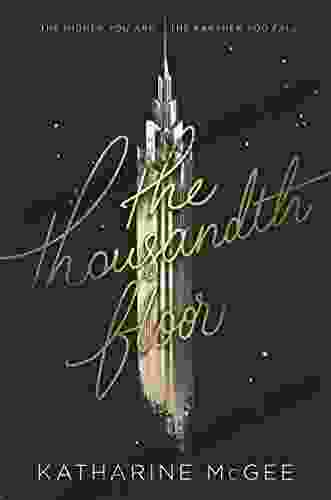
 Vladimir NabokovThe Thousandth Floor: An Immersive Dystopian Odyssey Exploring Inequality,...
Vladimir NabokovThe Thousandth Floor: An Immersive Dystopian Odyssey Exploring Inequality,... Donovan CarterFollow ·5.1k
Donovan CarterFollow ·5.1k Troy SimmonsFollow ·2.1k
Troy SimmonsFollow ·2.1k Mike HayesFollow ·3k
Mike HayesFollow ·3k Vernon BlairFollow ·8.3k
Vernon BlairFollow ·8.3k Thomas PowellFollow ·18.1k
Thomas PowellFollow ·18.1k Joshua ReedFollow ·9.6k
Joshua ReedFollow ·9.6k Melvin BlairFollow ·9.8k
Melvin BlairFollow ·9.8k Patrick RothfussFollow ·12.6k
Patrick RothfussFollow ·12.6k

 Henry David Thoreau
Henry David ThoreauHow To Bake In Unique Way: Unleash Your Culinary...
Baking is an art form that transcends the...
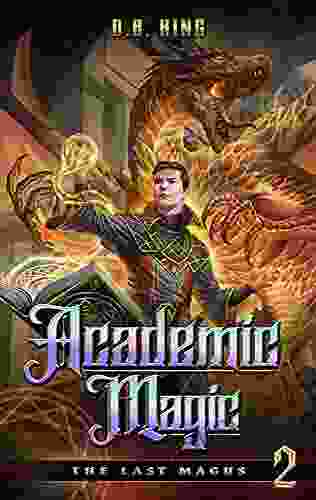
 F. Scott Fitzgerald
F. Scott FitzgeraldAcademic Magic: Unveil the Secrets of The Last Magus
Delve into a Realm of...
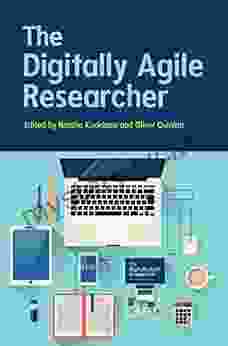
 John Green
John GreenThe Digitally Agile Researcher in UK Higher Education:...
In the rapidly...
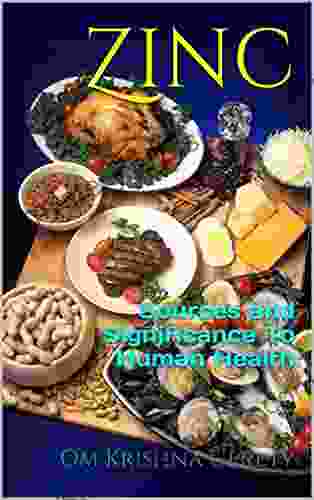
 George Orwell
George OrwellZinc: Sources And Significance To Human Health
Zinc, an essential trace mineral, plays a...

 Mario Simmons
Mario SimmonsToo Scared to Tell: A Harrowing and Thought-Provoking...
In the realm...
4.4 out of 5
| Language | : | English |
| File size | : | 5841 KB |
| Text-to-Speech | : | Enabled |
| Screen Reader | : | Supported |
| Enhanced typesetting | : | Enabled |
| Word Wise | : | Enabled |
| Print length | : | 495 pages |


